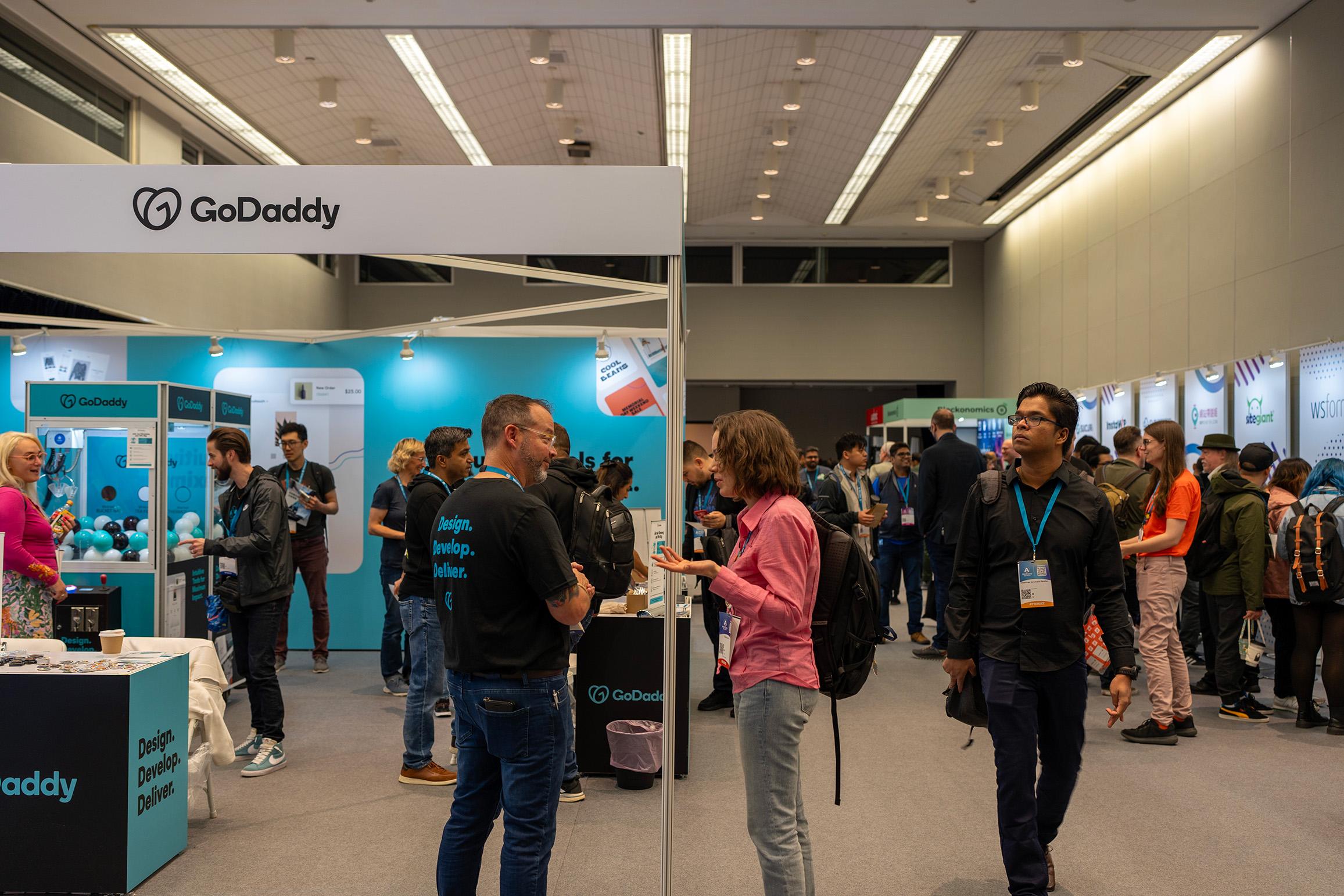What is a WordPress developer?
A WordPress developer specializes in creating and maintaining websites using the WordPress content management system (CMS).
A CMS is a software application that makes it easier to create, manage, and publish content online.
As a WordPress developer, you’ll use your expertise to customize the WordPress platform to meet the specific needs of a client or project. Beyond building WordPress websites, WordPress developers often create custom themes or develop plugins that extend the functionality of WordPress.
WordPress developers are skilled at optimizing a WordPress website so it’s user-friendly and loads quickly for visitors. You may work on site design (the “front end”) or supporting architecture such as databases and servers (the “back end”). There are many WordPress developer specializations, and there’s never been a better time to jump into a career in WordPress.
How is WordPress used around the world?
WordPress powers over 43% of internet websites in 2023.
WordPress is the most popular CMS in use today, with over 63% of the CMS market share. WordPress is used by big brands like Sony, Meta, Time Magazine, CNN, Disney, Spotify, and Microsoft. At best estimate, it powers over 43% of all websites on the internet today.
WordPress makes it easy for non-technical users to publish content on the web without knowing how to code websites.
What can you do with WordPress? Virtually anything! WordPress’s massive plugin library created by WordPress developers extends the functionality of WordPress. There are over 60,000 existing plugins, and as a WordPress developer, you can leverage these plugins or write your own.
You can build a WordPress website based on a template theme in a matter of minutes. Or, you can quickly make WordPress websites that work entirely differently from a stock WordPress installation.
WordPress is being used for:
- Business websites
- Personal blogs
- Online communities
- eCommerce
- Social networking
- Forums
- Customer support
- Product promotion
- Project management
- Portfolios
- And much more.
This incredible versatility is one reason WordPress is so widely used and why WordPress developers are always in demand.
Types of WordPress developers
WordPress development is a broad and varied discipline. You might want to specialize in a particular strand of WordPress development. WordPress developers include:
- Front-end developers—Focus on the user experience elements of WordPress sites, such as user interfaces and themes.
- Back-end developers—Specialize in the server-side aspects of running WordPress websites, the nuts and bolts behind the scenes. This includes databases, server software, and network infrastructure.
- WordPress plugin developers—Coders who focus on the creation of plugins that extend the functionality of WordPress.
- WordPress theme creators—Designers with a flair for creating and modifying WordPress themes to customize how WordPress sites look.
- eCommerce WordPress developers—Specialize in creating online stores using WordPress using plugins like WooCommerce.
- WordPress SEO specialists—Experts in search engine optimization (SEO), helping WordPress websites to appear more highly in search engine rankings.
- WordPress core developers—Work on the actual WordPress core code, improving and refining it.
- WordPress site maintenance and optimization—Ensures WordPress websites run quickly and are free from security holes.
- Full-stack WordPress developers—The jack-of-all-trades, full-stack developers have expertise in all the above.
Search engine optimization (SEO) is optimizing a website so it appears higher in search engine results pages (SERPS).
How to become a WordPress developer?
The exact path to becoming a WordPress web developer will depend on the type of development you want to focus on. You’ll need knowledge of multiple programming languages and a deep understanding of WordPress products.
There are several steps that all budding WordPress developers will want to follow when learning everything they need to know about WordPress.
Learn the basics of HTML, CSS, and JavaScript

HTML, CSS, and JavaScript form the basis of all modern websites.
A WordPress developer knows several programming languages. The fundamental building blocks of virtually all modern websites, including WordPress sites, are HTML, CSS, and JavaScript. You should start by learning each of these languages.
When visitors access your website, HTML, CSS, and JavaScript files are sent to their web browser. Their web browser decides how to interpret and display the files.
- HTML (Hypertext Markup Language) tells the browser what information should be displayed on a page. It includes the structure of text, headings, and images.
- CSS (Cascading Style Sheets) defines the look and layout of the information specified in the HTML. It’s where things like colors, font styles, and line spacing are specified.
- JavaScript is a programming language that adds interactivity to web pages. Without JavaScript, web pages would be mostly static. JavaScript allows pages to be interactive and update without requiring the entire page to reload.
Within the sphere of JavaScript, you’ll find jQuery. This is a popular library for JavaScript for manipulating web pages. jQuery can do things like hide and show HTML elements or create animation effects. By learning and using jQuery, you’ll save time and your code will be easier to read.
There are thousands of free resources online for learning HTML, CSS, and JavaScript. Some of the most well-known are W3Schools, freeCodeCamp, and The Odin Project.
Learn how to use WordPress
Now you understand the format of the files WordPress creates, learn the ins and outs of WordPress itself. The best way to start is to install WordPress on your hosting and test all the features!
Editor’s Note: GoDaddy offers outstanding WordPress hosting plans at highly competitive pricing, perfect for getting to grips with WordPress.
WordPress offers detailed documentation on every feature, with support guides for new users. Try out everything you can do with a standard WordPress installation, from widgets and blocks to themes and media. The WordPress software is an incredibly powerful platform when you understand how to use all the tools it includes.
Study the security implications of hosting a WordPress website with third-party plugins and ways to identify security vulnerabilities. WordPress is a highly-secure CMS, but it requires developers understand how to build and deploy secure plugins.
Become acquainted with the most popular plugins for WordPress. Many WordPress websites have online stores using the popular eCommerce plugin WooCommerce, for example. It’s a hugely important plugin in the WordPress ecosystem. If you plan to work on eCommerce projects, it’s a given you should understand how to use WooCommerce. Many other plugins are extremely popular, too, so it makes sense to install them and test their features and limitations.
Again, there’s a wealth of resources online for learning how to use WordPress, particularly resources aimed at absolute beginners. Some of the most popular options for WordPress tutorials include WPBeginner and the WordPress Codex.
Learn PHP
To take WordPress web application development to the next level, you’ll want to learn PHP: Hypertext Preprocessor (PHP). It’s the programming language that WordPress is based on.
PHP is a server-side scripting language. Its scripts are run on the web server, as opposed to JavaScript, which runs on the visitor’s computer.
PHP allows for persistent user sessions, where the website can remember a user’s activity and state across multiple visits.
PHP is used for things like database access, handling form submissions, and user authentication. The use of PHP allows for persistent user sessions for a more personalized and seamless visitor experience.
PHP is a powerful scripting language with its own syntax. Still, it’s relatively easy to learn if you already know HTML and JavaScript. Popular free resources for learning PHP include PHP The Right Way and the official PHP documentation.
Editor’s Note: GoDaddy’s web hosting has full PHP support, so it’s a great place to build websites using PHP.
Learn how to use the WordPress API
Now you have a good understanding of HTML, CSS, JavaScript, PHP, and WordPress. But there’s one more thing to learn so you can create advanced custom WordPress plugins and themes. This is the WordPress API (Application Programming Interface).
An API (Application Programming Interface) is a set of rules that allow software applications to communicate and exchange data.
The WordPress API can be used to extend the functionality of a WordPress website or modify existing features. You can even build entirely new applications on top of WordPress.
The WordPress API can be used to integrate a WordPress site with other systems. This could be a company’s existing booking service, a mobile app, or a third-party service, for example. You can pull or push data from WordPress from other applications.
By using the WordPress API, you don’t need to write so much code when creating custom WordPress plugins. It’s well-documented and widely used, so there are many resources to turn to, starting with the WordPress developer documentation.
Get experience by working on projects
Cementing your skills are a WordPress developer comes from working on real projects. You can start small with simple WordPress sites. Set up your own software development environment you can be comfortable testing and troubleshooting with. Familiarize yourself with the WordPress platform and all its features.
It’s important to feel comfortable with HTML, CSS, JavaScript, and PHP before embarking on more challenging WordPress projects. Build some simple prototype sites, taking time to learn how each element fits together to make a complete piece. Practice debugging and troubleshooting issues in a development environment.
Spend some time understanding how WordPress sites use other software. For example, WordPress makes use of MySQL, a database management system. This is where WordPress stores everything about users, page content, comments, etc. So, it’s good to have some understanding of Structured Query Language (SQL). This is the standard language used for storing, manipulating, and retrieving data in databases.
Structured Query Language (SQL) is a programming language used for accessing, modifying, and extracting information from databases like MySQL.
Familiarize yourself with software commonly used in website hosting. For example, WordPress sites are served by web server software such as Apache. Research how domain names work, and the website hosting types you can use. Troubleshooting issues becomes all the easier when you understand all the moving parts in play.
Build some simple WordPress development projects, making use of the WordPress ecosystem, functions, and APIs. Examine existing theme templates and custom plugins to see how they’re built. Make your own versions and alter them for your own needs. Consider contributing to open-source projects to practice your skills and build your portfolio.
Editor’s Note: You can use the outstanding WordPress Hosting plans from GoDaddy to build your sites using WordPress at low cost.osting plans from GoDaddy to build your sites using WordPress at low cost.
Continuously update your skills
The truth is, you’re never really finished learning WordPress! It’s a constantly evolving piece of software, with new features being added all the time. WordPress developers must keep their skills and knowledge up to date on WordPress and the major software it interacts with.
You can attend WordPress WordCamps and meetups to get face-to-face updates on what’s new and trending in WordPress. Keeping informed on WordPress changes over the internet is required, too. You can follow popular WordPress blogs and podcasts, and participate in WordPress forums and communities. You can also keep up to date on WordPress in social media, such as the WordPress subreddit.
The WordPress developer resources page is a wonderful spot for learning WordPress code specifics. For more advanced tutorials, you may consider joining an online course.
The best way to improve your WordPress skills and understand how everything works is to make sites and projects. Actually performing the work required is the only way to discover all of WordPress’s quirks and become an expert WordPress programmer.
Editor’s Note: GoDaddy is an industry-leading WordPress hosting provider, the perfect place to build and test your own WordPress projects.
How much do WordPress developers earn in India?
The average annual salary for a WordPress developer is around Rs 3,00,000 to 4,00,000 in India. Here are the detailed career path and earnings of a WordPress Developer in India:
Freelance WordPress Developer
Job Role: A freelancer developer handles a variety of client projects independently. Experience, project complexity, and customer budget are the three main factors that significantly impact the earnings of a freelance developer.
Salary: Salary is not fixed (flexible) and subject to change based on agreed-upon tasks and customer needs. The average earning in a week can be Rs 9,500 to Rs 10,000.
WordPress Developer Intern
Job Role: Ideal for fresh graduates and web development enthusiasts seeking hands-on experience. Responsibilities include setting up website layouts on WordPress and exploring themes.
Salary: The focus of an intern and trainee is to learn rather than earn. The average stipend a company pays to an intern is somewhere between Rs 15,000 to Rs 20,000 per month.
Junior WordPress Developer
Job Role: Involves more responsibilities, including website maintenance and working on both front-end and back-end tasks. They require previous experience with WordPress, either from internships or personal projects.
Salary: Approximately Rs 25,000 to Rs 35,000 per month, depending on the organization.
Senior WordPress Developer
Job Role: Requires deep knowledge of WordPress and PHP. Responsibilities include managing a team, working on plugins, and ensuring website functionality.
Salary: Rs 35,000 – Rs 55,000 per month with 4-6 years of experience; over Rs 70,000 – 80,000 per month with 6-8 years of experience.
WordPress Development Lead
Job Role: A lead position focuses on overseeing all WordPress-related projects within an organization, collaborating with various team members, and ensuring project efficiency.
Salary: Rs 7,50,000 to Rs 10,00,000 per year per year, with potential increases based on experience.
Web Development Team Lead
Job Role: Oversees all web development activities, including WordPress, and typically requires 15+ years of experience.
Salary: Around Rs 12,00,000 per year, depending on the expertise and broad knowledge of the developer.
This salary structure provides a clear pathway for those interested in pursuing a career in WordPress development in India, highlighting both the roles and the potential earnings at different stages of a developer's career.
Is a WordPress Developer a good career option in India?
WordPress developers have a substantial influence in the business world because of their exceptional technical skills. Here are a few reasons why being a WordPress developer in India could be a smart move for your career:
- Professionals who can design and manage websites are in high demand among businesses, bloggers, and entrepreneurs.
- A degree isn't always necessary to begin a career as a WordPress developer. It is accessible to a broad spectrum of individuals since many professionals begin by studying through Internet resources.
- WordPress developers in India have the chance to deal with customers all over the globe, which opens up a world of possibilities for them.
- WordPress developers have the option to work remotely, which creates a flexible work environment.
The average salary of a WordPress developer might not be the highest, so it can be disappointing for someone who is just interested in doing it for the money. But it may be a rewarding profession for those who do it because they love it. Meanwhile, if you choose to work as a freelance, it will give you a lot of flexibility to take on many tasks at once, which may increase your earnings.
How much salary should I expect if I have 1 year of experience in WordPress website development in India?
In India, a monthly salary between Rs 15,000 and Rs 30,000 is typical for those with one year of experience developing WordPress websites. The city in which you are employed and the nature of your duties are a few variables that might cause this to differ.
For startups: The monthly salary range for smaller enterprises or startups might be between Rs 15,000 to Rs 20,000.
Agencies or mid-sized businesses: They can provide a monthly salary ranging from Rs 25,000 to Rs 30,000.
Salary expectations can be greater in metropolises like Bangalore, Mumbai, or Delhi. Plus, your earning potential might be much higher if you have knowledge of complex WordPress modification, PHP, digital marketing and search engine optimization.
Get involved in the WordPress community
Networking with others in the WordPress community is a surefire way to improve your understanding while opening up new opportunities.
WordPress runs WordCamps, conferences worldwide where casual WordPress users to core developers can network. Recent WordCamps have been held in various cities in India, as well as Taipei, Bangkok and Cebu.
You can learn much from established WordPress developers. They’ll offer you tricks and tips on how to developer faster and more efficiently. You’ll keep track of the latest WordPress trends and find answers to common questions asked when developing WordPress sites. You can get tips on theme development, general web design, and back-end development.
WordPress is an open-source project, so you can contribute to its development and even help decide the software’s direction. By becoming a prominent voice in the WordPress community, your authority in the industry is demonstrated to potential clients, too.
Editor's Note: GoDaddy is a global community sponsor of WordPress community, and we'll love to see you at your next WordCamp! Here are some highlights from our time at WordCamp Asia 2024.
Look for job opportunities in WordPress development
Now you’re a WordPress wizard, it’s time to get paid! Professional experience teaches you the real challenges businesses face and how you can use WordPress to help them.
WordPress developers have several options for finding work. You can be a WordPress freelancer, offering services through freelance websites like Upwork and Freelancer.
You can offer WordPress contracting services directly to companies. Alternatively, you can work as part of a website development company. Or you can become a dedicated WordPress website developer for a large company.
Another option is to offer specific services, like WordPress theme development and design. If you have a flair for design, you can sell premium WordPress themes to be used on hundreds or thousands of websites. Companies may seek you out to create a custom theme for them or ask you to make small tweaks to their existing themes.
You can focus on plugin development, extending the functionality of WordPress websites. You can either make your plugin available for sale on the WordPress marketplace, or write custom WordPress plugins for companies that request them from you.
As your professional portfolio grows, you’ll become more sought after and can charge higher rates.
Start now with WordPress Hosting by GoDaddy
The best way to start with WordPress is to start using it!
GoDaddy offers industry-leading WordPress hosting with all the best WordPress hosting features rolled into highly affordable packages. WordPress on GoDaddy is optimized for speed and performance. Your WordPress website will be hosted on high-performance Singapore servers, so it will load lightning quickly for visitors in Asia.
GoDaddy is the best place the learn WordPress, thanks to the extensive video lessons, vibrant community, and 24/7 support.
When you choose WordPress hosting from GoDaddy, WordPress comes pre-installed on your hosting. You get site optimization tools, daily backups, 24-hour malware scans, and space for up to 50 websites. All GoDaddy plans include a free domain and email for the first year.
Start your journey as a WordPress developer now by checking out GoDaddy's WordPress hosting offerings!
Editor's Note: This article was first published on Apr 2, 2024 and updated on Sept 13, 2024. It also contains content written by Aman Jha.







